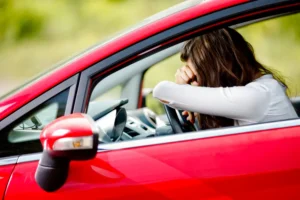Will Not Wearing A Seat Belt Affect My Personal Injury Claim?~2 min read

Wearing a seat belt can save your life, but can it also save your personal injury case? If you’re hurt in a car accident that’s not your fault, you would like to be compensated for your damages. You may have expenses from medical bills, lost wages, and therapy. The concern is who’s to blame for injuries from the car accident if you didn’t wear your seat belt. Here we’ll explore seat belt laws and how they affect your personal injury case.
Seat Belt Laws
There are safety belt and car seat laws to prevent and reduce accident related injuries with motor vehicles. Most states require front and back passengers to wear seat belts. Some states only require front passengers to use seat belts. According to the Insurance Institute for Highway Safety, New Hampshire is the only state that doesn’t enforce safety belts. The consequences of breaking the seat belt law is a ticket. It can be a much worse financial outcome if an accident happens.
Shared Responsibility for Personal Injuries
Even if the car accident isn’t your fault, you could share fault if you didn’t take measures to prevent your injuries. In a personal injury case, there are factors to determine the percentage of fault for damages. Those factors, along with state regulations, may determine your compensation (if any) in a personal injury case.
Comparative Negligence
In Texas, comparative fault assigns a percentage of fault to each negligent party. The amount of compensation is based on the percentage of fault for the other party for the injuries. In other words, what you receive will be reduced by your percentage of fault. But, if you were more than 50% at fault for causing your own injuries, you will be barred from recovering anything.
What Happens if I Don’t Wear a Seat Belt and Have Personal Injuries?
If you don’t wear a seatbelt and have personal injuries, expect to pay in some form. Either your settlement will be cut short or you won’t have one at all. It all depends on the laws for your state.





